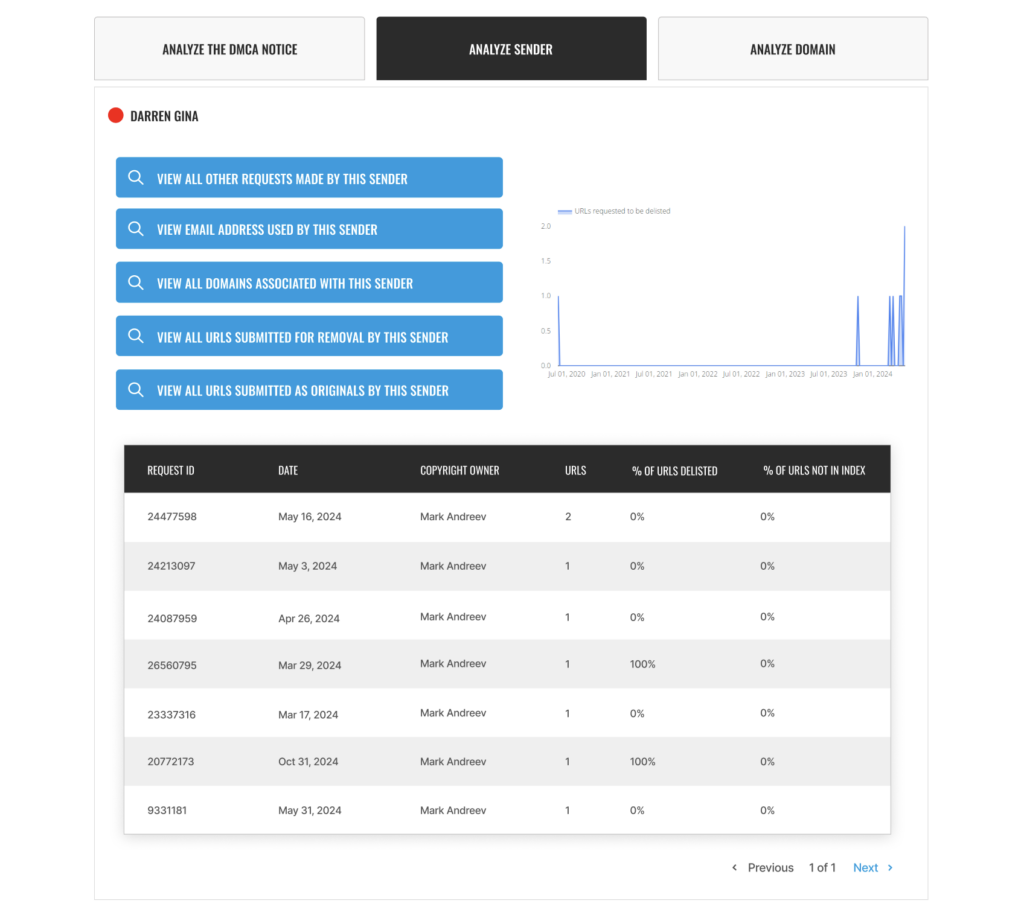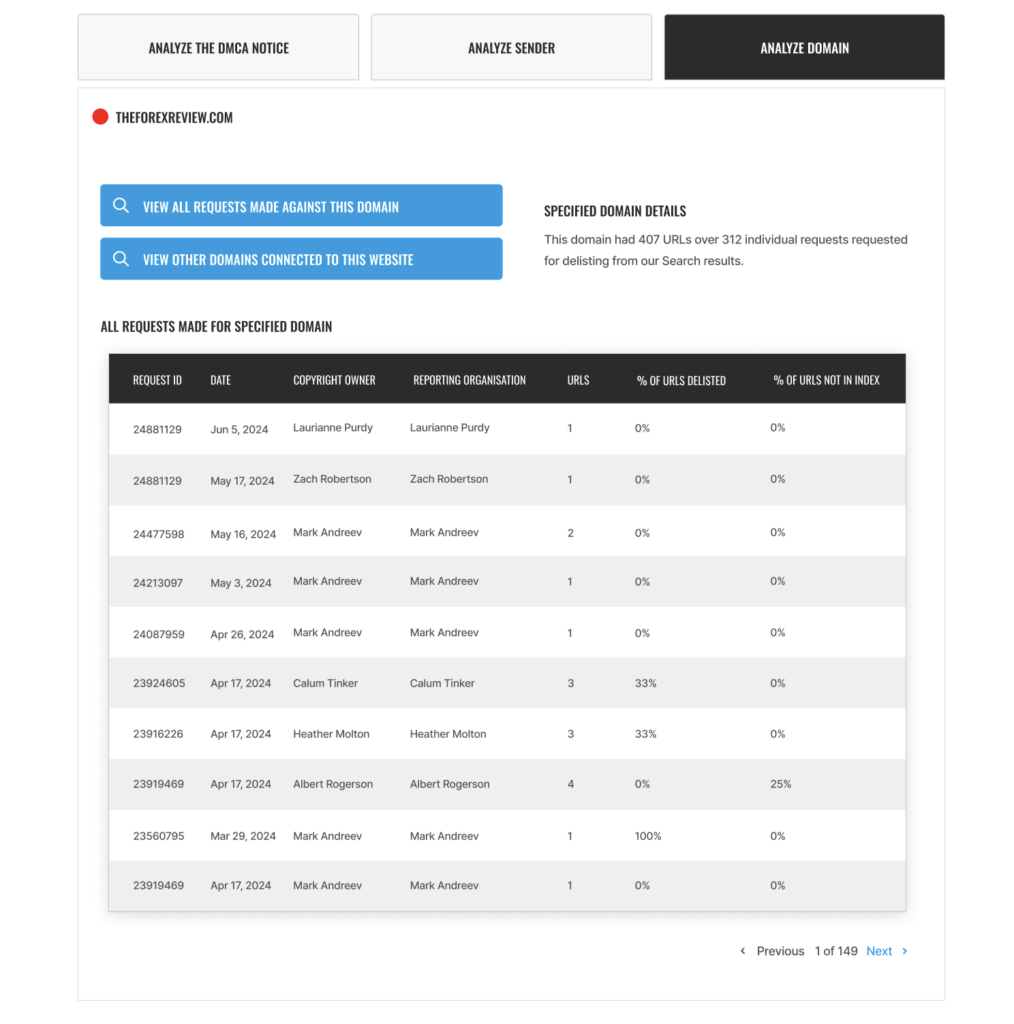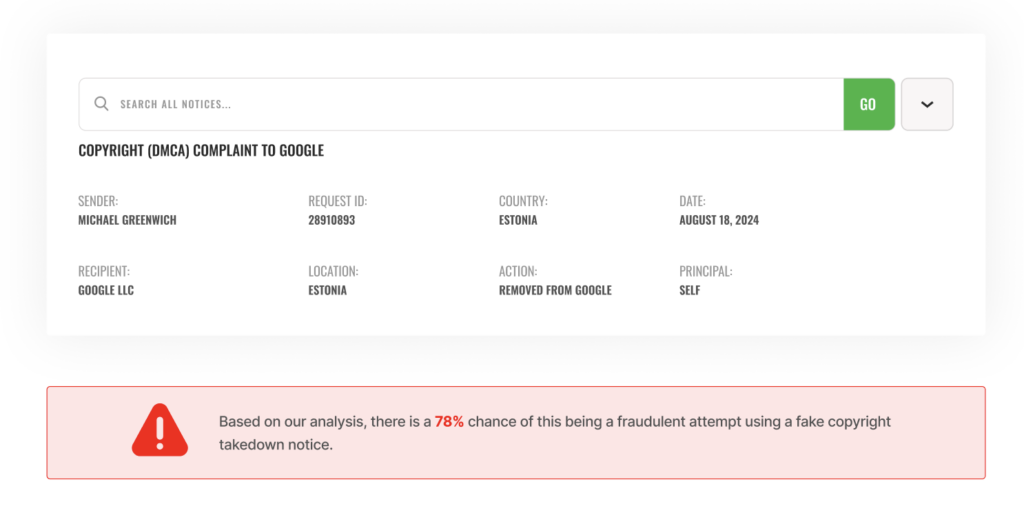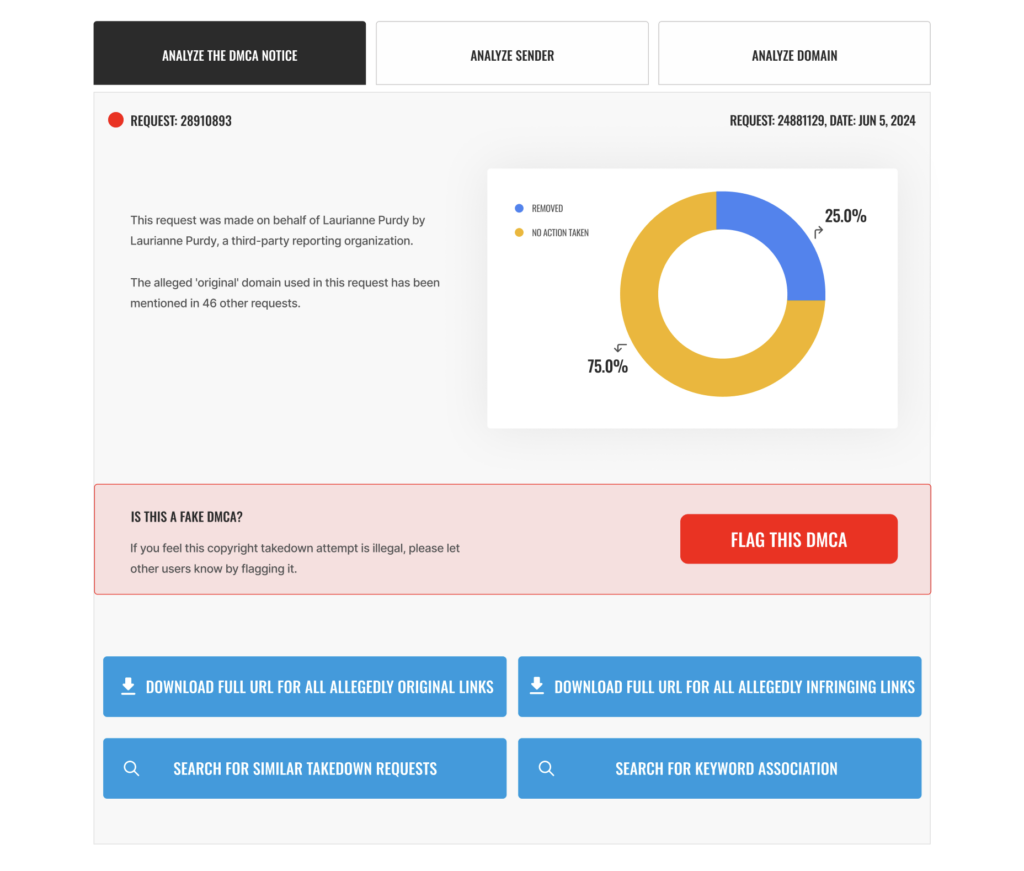What Happened?
Vladimir Plahotniuc, a Moldovan oligarch with significant influence over the country’s political and business sectors, has been embroiled in numerous scandals and allegations. Known for his vast wealth and network of power, Plahotniuc has worked relentlessly to rewrite his public image. By leveraging his wealth and connections, he has attempted to erase traces of a shady past involving accusations of corruption, money laundering, and political manipulation.

The International War and Peace Reporting (IWPR) recently highlighted Plahotniuc’s activities in Dubai, where a “cashier” of sorts helped manage his financial dealings, raising suspicions of offshore operations designed to cover up illicit gains. The article titled “Cashier in Dubai” exposes key details about his financial network, bringing into question his repeated attempts to censor damaging news and control the narrative regarding his involvement in criminal enterprises.

Analyzing the Fake Copyright Notice(s)
Our team collects and analyses fraudulent copyright takedown requests, legal complaints, and other efforts to remove critical information from the internet. Through our investigative reporting, we examine the prevalence and operation of an organized censorship industry, predominantly funded by criminal entities, oligarchs, and disreputable businesses or individuals. Our findings allow internet users to gain insight into these censorship schemes’ sources, methods, and underlying objectives.
List of Fake Copyright Notices for Vladimir Plahotniuc
| Number of Fake DMCA Notice(s) | 2 |
| Lumen Database Notice(s) | https://lumendatabase.org/notices/44106116 https://lumendatabase.org/notices/44144969 |
| Sender(s) | RML News Times RML News Times |
| Date(s) | Aug 26, 2024 Aug 27, 2024 |
| Fake Link(s) Used by Scammers | https://www.tumblr.com/rmlnewstimes/755607843158327296/the-cashier-in-dubai https://www.tumblr.com/rmlnewstimes/755607843158327296/the-cashier-in-dubai |
| Original Link(s) Targeted | https://iwpr.net/global-voices/cashier-dubai https://iwpr.net/global-voices/cashier-dubai |
Evidence and Screenshots


How do we investigate fake DMCA notices?
To accomplish this, we utilize the OSINT Tool provided by FakeDMCA.com and the Lumen API for Researchers, courtesy of the Lumen Database.
FakeDMCA.com is the work of an independent team of research students and cybersecurity professionals, developed under Project UnCensor. Their OSINT Tool, designed to uncover and analyze takedown notices, represents a significant step forward in combating these abusive practices. It has become a valuable resource, increasingly relied upon by journalists and law enforcement agencies across the United States.
Lumen, on the other hand, is an independent research initiative dedicated to studying takedown notices and other legal demands related to online content removal. The project, which operates under the Berkman Klein Center for Internet & Society at Harvard University, plays a crucial role in tracking and understanding the broader implications of such requests.
What was Vladimir Plahotniuc trying to hide?
Vladimir Plahotniuc is a central figure in Moldova’s political landscape, with a reputation that has earned him the title of one of the country’s most notorious oligarchs. His influence spans across multiple sectors, including business, politics, media, and law enforcement, making him one of the most powerful yet controversial individuals in Moldova. As the former leader of the Democratic Party of Moldova (PDM), Plahotniuc held a tight grip over the government, effectively controlling the parliament, the judiciary, and law enforcement agencies through his network of loyalists and proxies.
Plahotniuc’s public image, however, is tainted by a series of adverse allegations and scandals that have followed him for years. One of the most significant incidents linked to Plahotniuc is the “Great Moldovan Bank Robbery” of 2014, a financial scandal in which $1 billion was embezzled from the country’s banking system. The amount stolen represented a staggering 12% of Moldova’s GDP, leading to economic turmoil and protests. Multiple investigations have pointed to Plahotniuc’s possible involvement in orchestrating or benefiting from this massive fraud, although he has never been formally charged.
Additionally, Plahotniuc has been accused of manipulating Moldova’s political system to maintain power and suppress opposition. He allegedly used his influence to engage in voter fraud, political bribery, and the harassment of political rivals. The oligarch’s extensive control over media outlets has been instrumental in shaping public perception, stifling dissent, and promoting a carefully crafted image of himself as a patriotic leader. Independent media and journalists have often faced intimidation, legal action, or even physical threats for attempting to publish reports that tarnish his image.
One key element of Plahotniuc’s strategy to evade accountability has been through international money laundering and the creation of complex financial networks. The IWPR article “Cashier in Dubai” exposes how Plahotniuc utilized financial intermediaries, including a so-called “cashier” based in Dubai, to handle his wealth through a series of offshore transactions. These intermediaries allegedly facilitated the movement of large sums of money out of Moldova to secret accounts in offshore jurisdictions, making it difficult for authorities to trace. This financial maneuvering not only allowed Plahotniuc to hide his wealth but also to continue exerting influence from abroad, even after fleeing Moldova amidst growing pressure and calls for his arrest.
There have been multiple complaints and bad reviews of Plahotniuc’s activities, especially concerning his disregard for the rule of law and human rights. Reports have surfaced accusing him of using Moldova’s judiciary as a personal tool for silencing opposition. Politicians, businessmen, and activists who posed a threat to his interests were often subjected to politically motivated prosecutions, trumped-up charges, and even wrongful imprisonment. Moreover, critics allege that Plahotniuc’s security apparatus conducted surveillance, intimidation, and, in some cases, orchestrated attacks against journalists and political opponents.
Plahotniuc’s attempts to clean up his digital footprint are evident in his efforts to suppress damaging news and online content that sheds light on his alleged corrupt activities. This includes using legal threats, defamation lawsuits, and cyber operations to take down negative articles and critical social media posts. Plahotniuc’s team of lawyers and PR specialists have been known to issue takedown requests and pressure platforms to remove content, while employing SEO tactics to push unfavorable stories down in search engine results, effectively burying them. In addition, there have been efforts to create fake positive content, portraying him as a philanthropist and a defender of Moldova’s sovereignty, to counteract the overwhelming negative publicity.
Moreover, Plahotniuc has faced international sanctions, including travel bans and asset freezes by the U.S. government, which accused him of significant corruption that undermined the rule of law and democratic institutions in Moldova. Despite these actions, Plahotniuc has used his wealth and influence to maintain a presence in different countries, allegedly seeking asylum and using his offshore assets to sustain his lifestyle and influence from afar.
In summary, Vladimir Plahotniuc’s attempt to hide his shady past involves a multifaceted strategy of censorship, intimidation, and sophisticated financial engineering. By leveraging his wealth, political connections, and a well-oiled media apparatus, he has been able to avoid accountability for numerous allegations of corruption, human rights abuses, and economic crimes. However, investigative reporting, such as the piece from IWPR, continues to unravel the extent of his activities, making it increasingly difficult for him to maintain a sanitized public image.
Only Vladimir Plahotniuc benefits from this crime.

Since the fake copyright takedown notices were designed to remove negative content for Vladimir Plahotniuc from Google, we assume Vladimir Plahotniuc or someone associated with Vladimir Plahotniuc is behind this scam. It is often a fly-by-night Online Reputation agency working on behalf of Vladimir Plahotniuc. In this case, Vladimir Plahotniuc, at best, will be an “accomplice” or an “accessory” to the crime. The specific laws may vary depending on the jurisdiction. Still, the legal principle generally holds that if you actively participate in planning, encouraging, or facilitating a crime, you can be charged with it, even if you did not personally commit it.
How do we counteract this malpractice?
Once we ascertain the involvement of Vladimir Plahotniuc (or actors working on behalf of Vladimir Plahotniuc), we will inform Vladimir Plahotniuc of our findings via Electronic Mail.
Our preliminary assessment suggests that Vladimir Plahotniuc may have engaged a third-party reputation management agency or expert, which, either independently or under direct authorization from Vladimir Plahotniuc, initiated efforts to remove adverse online content, including potentially fraudulent DMCA takedown requests. We will extend an opportunity to Vladimir Plahotniuc to provide details regarding their communications with the agency or expert, as well as the identification of the individual(s) responsible for executing these false DMCA notices.
Failure to respond in a timely manner will necessitate a reassessment of our initial assumptions. In such an event, we will be compelled to take appropriate legal action to rectify the unlawful conduct and take the following steps –
- Inform Google about the fraud committed against them.
- Inform the victims of the fake DMCA about their websites.
- Inform relevant law enforcement agencies
- File counter-notices on Google to reinstate the ‘removed’ content
- Publish copies of the ‘removed’ content on our network of 50+ websites
By investigating the fake DMCA takedown attempts, we hope to shed light on the reputation management industry, revealing how Vladimir Plahotniuc and companies like it may use spurious copyright claims and fake legal notices to remove and obscure articles linking them to allegations of fraud, tax avoidance, corruption, and drug trafficking…
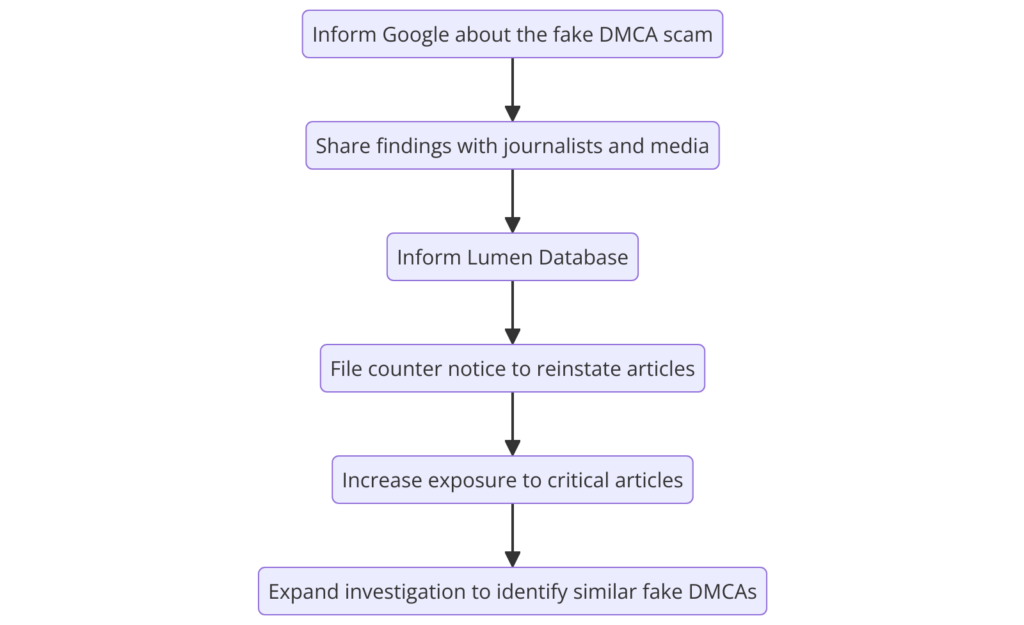
Since Vladimir Plahotniuc made such efforts to hide something online, it seems fit to ensure that this article and our original review of Vladimir Plahotniuc, including but not limited to user contributions, remain a permanent record for anyone interested in Vladimir Plahotniuc.
A case perfect for the Streisand effect…
Potential Consequences for Vladimir Plahotniuc
Under Florida Statute 831.01, the crime of Forgery is committed when a person falsifies, alters, counterfeits, or forges a document that carries “legal efficacy” with the intent to injure or defraud another person or entity.
Forging a document is considered a white-collar crime. It involves altering, changing, or modifying a document to deceive another person. It can also include passing along copies of documents that are known to be false. In many states in the US, falsifying a document is a crime punishable as a felony.
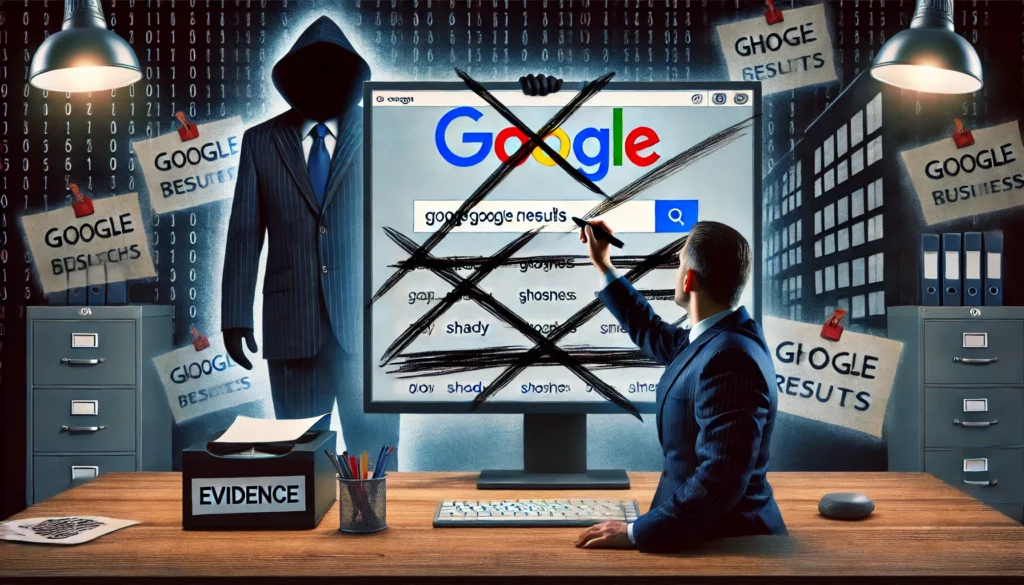
Additionally, under most laws, “fraud on the court” is where “a party has sentiently set in motion some unconscionable scheme calculated to interfere with the judicial system’s ability impartially to adjudicate a matter by improperly influencing the trier of fact or unfairly hampering the presentation of the opposing party’s claim or defense.” Cox v. Burke, 706 So. 2d 43, 46 (Fla. 5th DCA 1998) (quoting Aoude v. Mobil Oil Corp., 892 F.2d 1115, 1118 (1st Cir. 1989)).
Is Vladimir Plahotniuc Committing a Cyber Crime?
Yes, it seems so. Vladimir Plahotniuc used multiple approaches to remove unwanted material from review sites and Google’s search results. Thanks to protections allowing freedom of speech in the United States, there are very few legal ways to do this. Vladimir Plahotniuc could not eliminate negative reviews or search results that linked to them without a valid claim of defamation, copyright infringement, or some other clear breach of the law.
Faced with these limitations, some companies like Vladimir Plahotniuc have gone to extreme lengths to fraudulently claim copyright ownership over a negative review in the hopes of taking it down.
Fake DMCA notices have targeted articles highlighting the criminal activity of prominent people to hide their illegal behavior. These people, which include US, Russian, and Khazakstani politicians as well as members from elite circles including the mafia and those with massive financial power, are all connected – and alleged corruption ranging from child abuse to sexual harassment is exposed wh





